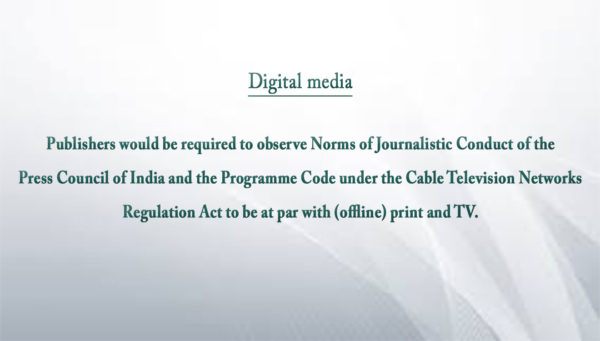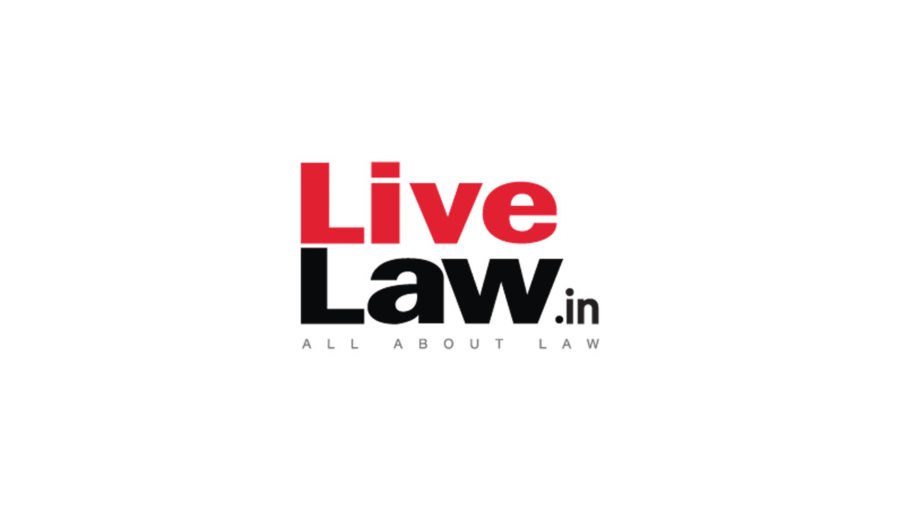The Kerala High Court passed an interim order on Wednesday restraining the Central government from taking any action against Live Law, the legal news portal, regarding the new IT Rules issued by the Centre, Live Law reported.
A single bench of Justice PV Asha restrained the Central government from taking any coercive action against the publication for non-compliance with provisions under Part III of the new IT (Guidelines for Intermediaries and Digital Media Ethics Code) Rules 2021.
“The Respondents shall not take any coercive action against petitioners for non-compliance of the provisions contained in Part 3 of IT Rules, as the petitioners are the publishers of law reports and legal literature,” the order read.
Live Law had filed a writ petition in the court challenging the constitutional validity of the new IT Guidelines and Regulations issued by the Centre on February 25 stating them as “arbitrary, vague, disproportionate and unreasonable” restrictions on digital news media and social media intermediaries.
The parent IT Act states: “An Act to provide legal recognition for transactions carried out by means of electronic data interchange and other means of electronic communication, commonly referred to as ― electronic commerce, which involve the use of alternatives to paper-based methods of communication and storage of information, to facilitate electronic filing of documents with the Government agencies and further to amend the Indian Penal Code, the Indian Evidence Act, 1872, the Banker’s Books Evidence Act, 1891 and the Reserve Bank of India Act, 1934 and for matters connected therewith or incidental thereto”.
The petition challenged the new rules as “illegal and violative of Articles13, 14, 19(1)(a), 19(1)(g), and 21 of the Constitution of India and also ultra vires the parent Act, the IT Act”.
The petitioners in the case are MA Rashid (founder and chief editor) and Manu Sebastian (managing editor) of Live Law.

The petitioners argued that the IT Act does not grant any rule-making power to the Central government to regulate digital media. They also submitted in the court that the regulatory mechanism under the Rules can not be termed as “reasonable restrictions” under Article 19(2) of the Constitution.
“We are reporting judgments. Somebody to whom the judgment is not palatable may make a grievance, and we are required to sit in appeal over the content (sic),” advocate Santhosh Mathew, who is representing Live Law, said.
Mathew pointed out that Live Law is a legal reporting publication that publishes legal affairs and opinion pieces- in that case if an individual disagreed with the publication’s views might file complaints using the new Rules.
The petitioners claimed that the new rules repealed the procedural safeguards that the Supreme Court had ensured during the Shreya Singhal judgment for intermediary regulation.
“The intermediary applying its own mind whether the content is to be blocked is absent in Section 69A, the SC noted in Shreya Singhal. The problem is we have to sit in judgment over objections,” Mathew pointed out.
The Section 69A of the IT Act gives the power to issue directions for blocking for public access of any information through any computer resource. The three parts of the section state that-
1. Where the Central Government or any of its officer specially authorised by it in this behalf is satisfied that it is necessary or expedient so to do, in the interest of sovereignty and integrity of India, defence of India, security of the State, friendly relations with foreign States or public order or for preventing incitement to the commission of any cognizable offence relating to above, it may subject to the provisions of sub-section (2) for reasons to be recorded in writing, by order, direct any agency of the Government or intermediary to block for access by the public or cause to be blocked for access by the public any information generated, transmitted, received, stored or hosted in any computer resource.
2. The procedure and safeguards subject to which such blocking for access by the public may be carried out, shall be such as may be prescribed.
3. The intermediary who fails to comply with the direction issued under sub-section (1) shall be punished with an imprisonment for a term which may extend to seven years and shall also be liable to fine.
Responding to this, the Centre’s counsel said that the “source of the power” of the rules can be traced to Sections 69A and 69B of the IT Act. He said that despite those provisions not mentioned in the rules explicitly, it will not make the publication “bad in law” by itself since the substantive rule-making power of the authority is unaffected by merely not mentioning the “source of power”.
While the court observed that there should be an exemption for reports on law, the CGC mentioned that the problem is not with the reporting of the judgments but oversight is necessary for the publication of the articles.
“It is not that they are publishing everything that is transmitted to them. Articles that have a personal opinion of the author, who is accountable?. They are also liable. Because they are providing the medium. Lakhs of people are reading these article (sic),” the CGC submitted while stating the fact that the editor and the publisher will be liable for the published articles.
To which Mathew said: “I am not saying I am not liable. I am only saying under Section 69A IT Act they have no power to regulate me.”
The CGC also submitted in the court that the new Rules contemplate a three-level regulatory framework and the Ministry’s oversight comes only after the levels of internal-regulation and self-regulatory bodies.
The Delhi High Court on Tuesday issued a notice to the Centre on a petition filed by the Foundation for Independent Journalism, publisher of The Wire, regarding the Centre’s new IT Rules regulating content on digital news media platforms, to strike them down.
In The Wire‘s petition, the synopsis has been described in details the elements and terms that are different and new in the IT Rules 2021, from its parent IT Act.
Recommended
Whereas the IT Rules 2021 includes, “‘Digital media’ is defined by Rule 2(1)(i) as content carried by either an intermediary or a ‘publisher’,” the petition stated.
According to their petition, the new IT Rules have mentioned about “‘publisher of news and current affairs content’ means an online paper, news portal, news aggregator, news agency and such other entity called by whatever name, which is functionally similar to publishers of news and current affairs content but shall not include newspapers, replica e-papers of the newspaper and any individual or user who is not transmitting content in the course of systematic business, professional or commercial activity” which is not present in its parent IT Act.
The court has given April 16 as the next date of hearing of The Wire’s petition.



